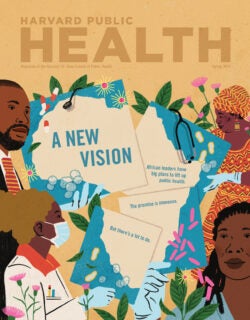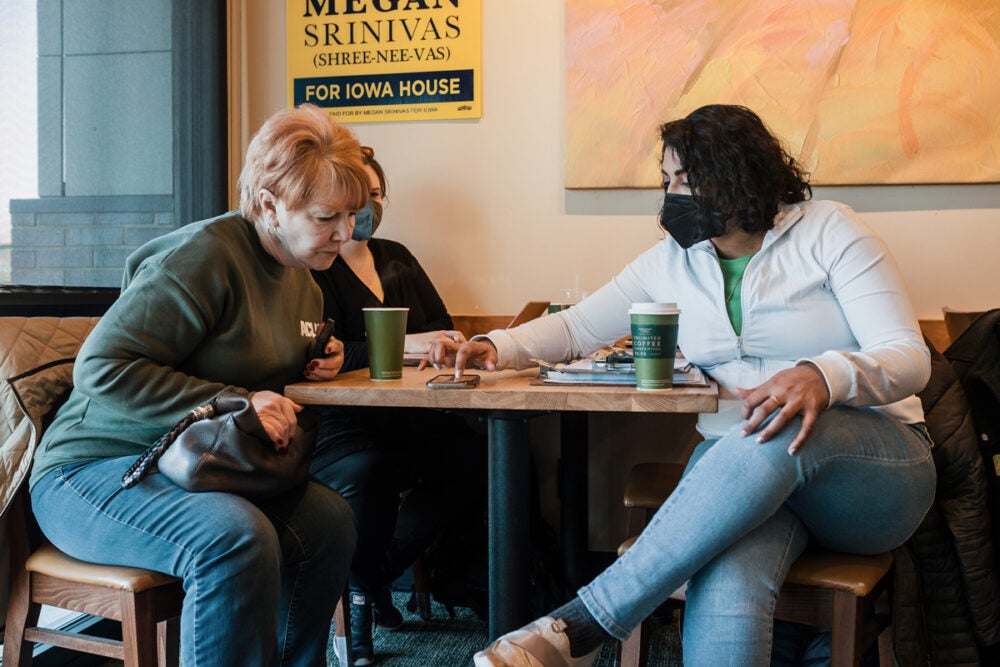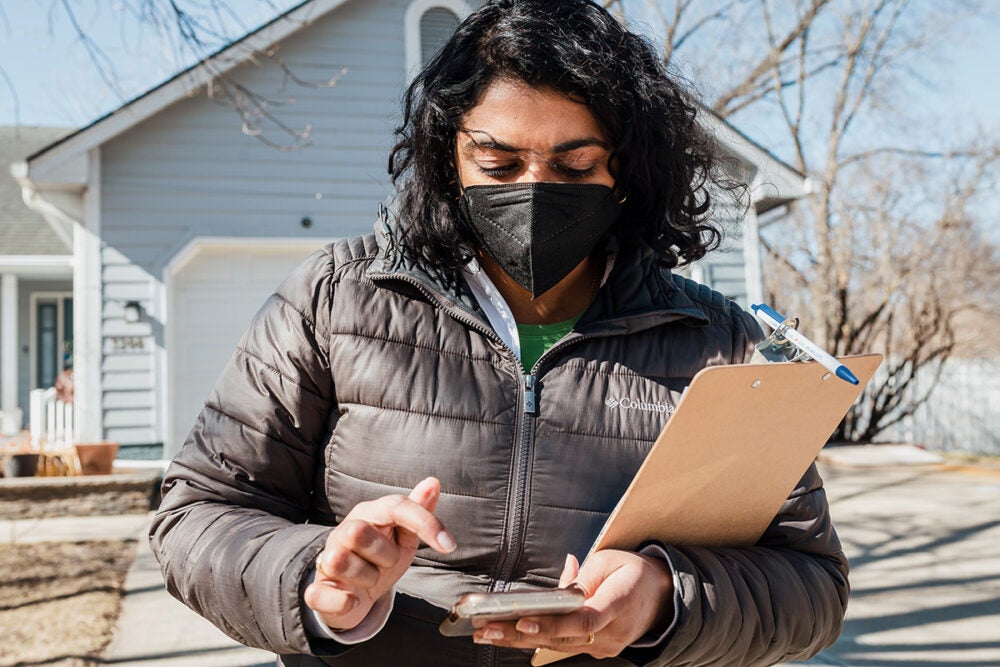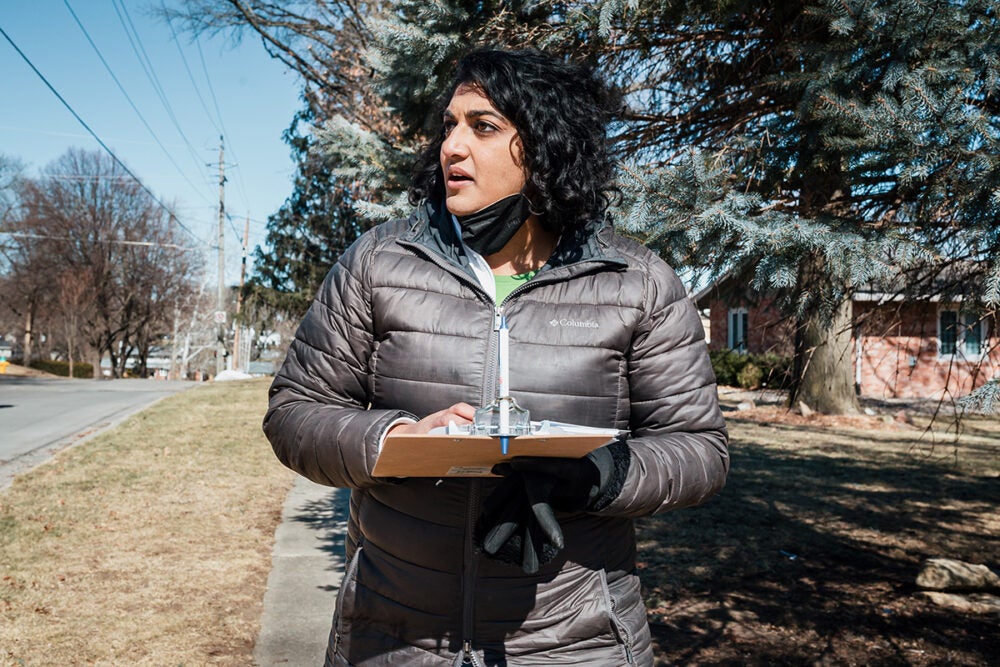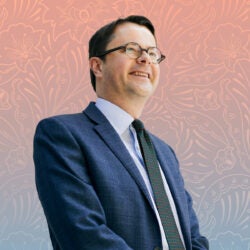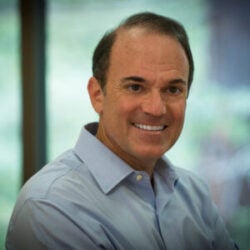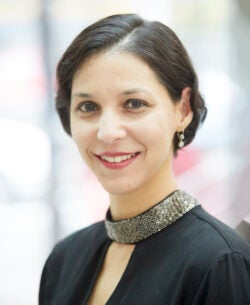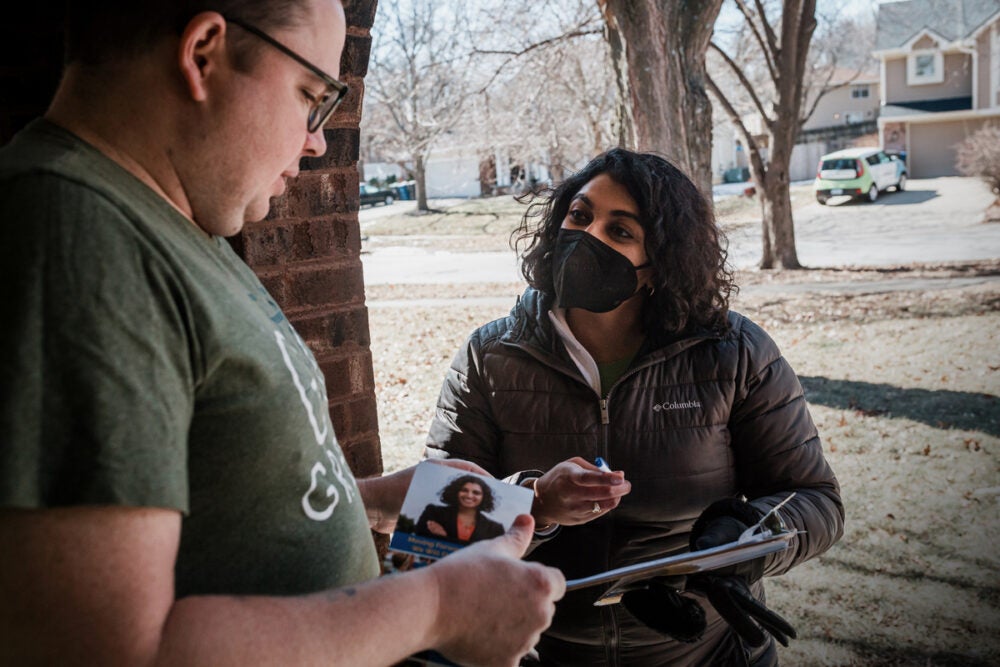
People
Doctor seeks the House
Even though Megan Srinivas lost her 2018 bid for the Iowa House of Representatives by just 383 votes, she wasn’t thinking about running again. Then what she saw as Iowa’s inadequate response to the COVID-19 pandemic made her realize she could help more people if she were at the table. “Why am I begging somebody else to make the decisions I would make myself?” she asked. Srinivas fits in campaigning around her work as a remote instructor and researcher at the University of North Carolina at Chapel Hill, and an infectious disease physician working part-time with the Iowa Primary Care Association and at Broadlawns Medical Center in Des Moines. She spoke to Senior Editor Amy Roeder about her commitment to her home state and the ballet class that changed her life. This interview was edited and condensed.
Editor’s note: Srinivas won her 2022 primary.
Q. What got you started on your path into medicine and public health?
A. In my family, the mentality of “What can you do for your community?” is very much ingrained. My older brother volunteered at a hospital when I was in elementary school, and I wanted to be like him. When I discovered that there was a shelter for women and children in the YMCA upstairs from my ballet class, I started an annual holiday donation drive at my school that turned into a larger community effort. It became a way to foster the idea that we’re all in this together and everyone can help.
In 2003, my sophomore year of high school, I was selected for a research internship with the World Food Prize. I worked in rural Kenya looking at the different factors that influenced food insecurity in the area. This opened my eyes to the disconnect that can happen in public health and humanitarian work between people working on the ground—the physicians, the researchers—who see the needs, and the people allocating the resources. I wanted to become a physician, but I also wanted to get my public health degree so that I could bridge that gap.
Q. What stands out for you about your experience at the Harvard Chan School?
A. The relationships you form with your classmates. You’re meeting people who have a wide variety of experiences and are at different stages of life. That mix of perspectives creates a rich dialogue that continues to inspire me.
I will never forget going to northwest Brazil on a WinterSession trip with Marcia Castro, [Andelot Professor of Demography and chair of the Department of Global Health and Population]. Our group was in a town that had a very high rate of HIV and a lot of LGBTQ stigma that impeded access to care. Meeting individuals going through these challenges helped shape how I approach public health problems—engaging people and then getting their voices reflected at the table on the policy side.
Q. After you received your education and medical training, what made you decide to return to Iowa?
A. During the 2016 election year I took time off from my residency at Johns Hopkins to work on a presidential campaign and was able to have an impact on the candidate’s health policy platform. That work made me more aware of the ways policies at the state level were affecting everyday Iowans’ lives—and the ways issues that spark debate in a state legislature, like reproductive health, can ripple across the country. I was also seeing Iowa drift away from the extremely progressive state I had grown up in and its education system deteriorate due to lack of funding. I wanted to put in the work to get my state back on track.
Q. What has your professional role been during the pandemic?
A. Some direct patient care, more so at the beginning, and a lot of telehealth appointments for COVID and other health needs for people in the prison system. But my largest impact has been the part that’s not my official job.
I saw that people didn’t know who to turn to for information. As a local physician, I think people were more willing to trust me. So, I went on social media and started translating data about the pandemic into a digestible format, including a series of videos for Spanish speakers that I collaborated on with Gilberto Lopez, [SD ’18]. I also spoke out in the media when I disagreed with the state government’s pandemic response and advocated for policies like making vaccines accessible regardless of citizenship status. And through advisory roles with the Infectious Diseases Society and the American Medical Association, I spoke on a ton of panels and helped educate other doctors on talking to patients about COVID. Basically, I’ve tried to be somebody who could help clear up confusion.
Like so many others in public health during the pandemic, I’ve experienced backlash. I ignored it until somebody spoofed my phone and called my parents to say that they had killed me and were going to kill them next.
Q. That sounds awful. How did you react? Did you start to question your advocacy?
A. It was upsetting, but my parents insisted that I keep doing what I was doing because I was helping so many people.
Q. Why did you decide to run for state representative again?
A.I n both 2018 and now, I did it because of my patients. When somebody comes to see me, I can write them a prescription. But if they can’t afford that medication, or if they have issues with housing, transportation, or food insecurity, that 15 minutes in my office means nothing. I wanted to utilize my experiences to help craft policy and change at a systemic level. After I lost my first campaign, I continued to advocate, continued to serve my community. Then the pandemic happened and further exacerbated so many of the issues affecting my patients’ lives.
I hadn’t been thinking of running again, but then the representative in my district retired, and a legislator I’d been working with on policy issues told me they needed physicians in state government. Everything fell into place after that conversation.
Q. What are your big dreams for the rest of your career?
A. The biggest thing is knowing that I am improving health equity in my community. We have so many issues with systems holding people back and not giving them access to the resources they need. I want to be a part of changing that, even if it’s just a little bit. I’ll be very happy if I am able to help even one person get access to something they need. Even if it’s just one person’s life, it’s worth it.
